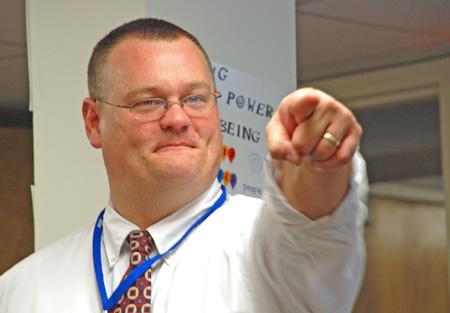
John Cosgrove
University Facilities and Resources officials report the campus has entered into stage 2 water restrictions and is seeing drastic cuts in water usage in every department.
Irrigation Manager Dave Townsend said extraneous water use has stopped, and water is only being used for safety or sanitation purposes.
“We are officially under stage 2 water restrictions, and all irrigation on campus is shut down,” Townsend said. “All the water we use now is drawn from Lake Raleigh.”
Townsend said countless measures have been implemented across the campus, and restrictions include everything from prohibiting the use of handheld hoses to draining and cutting off unused ice makers.
“These restrictions probably won’t be lifted until the spring,” Townsend said. “Our irrigation system has already been winterized, and it won’t be in use for the rest of the season.”
Utilities and Engineering Administrative Officer Wade Fulghum said the University started a program of water restrictions about six years ago, and these new limitations are just adding to the existing efforts.
“Since the 2001-2002 restrictions were implemented, we have reduced water usage by 29 percent,” Fulghum said. “That equates to approximately 262 million gallons.”
That’s also 2.8 billion 12-ounce glasses of water.
Fulghum said the problem is being addressed from a departmental standpoint, and the University Conservation Awareness Team was acting to mitigate this situation well before Gov. Mike Easley’s address this past Monday.
“By the time the governor and City Council get involved, we have already had several meetings,” Fulghum said. “We are hoping to use the governor’s message to leverage for more aggressive restrictions in the near future.”
Talley Student Center Maintenance Processing Assistant Marie Ministero said the campus Student Centers are doing their part to help conserve water and will not sponsor any events that waste water needlessly.
“The reduction of water use is an ongoing thing for Talley,” Ministero said. “We are doing our bit to spread the word, and I’ve received a lot of cooperation from all the staff members I’ve worked with.”
Ministero said it is important that the campus works together to cut back on water use because the University is one of the biggest water users in the Raleigh area.
“We use 1.2 million gallons of water every day here on campus; we are one of Raleigh’s five largest water users,” Ministero said.
According to Fulghum, although the University is striving to do all it can to regulate water use, only a change in the weather can put an end to the water problems on campus.
“If we don’t get any rain, students might see a browning of campus green-space in the near future,” Fulghum said. “Our best hope for the future is to pry for rain, because that’s what we really need.”
Townsend expressed similar sentiments when he said only a large quantity of rain can bail the campus out of this situation, and the University is prepared ride out the situation until spring.
“We have turned everything off, and we will just take our losses and pray for rain,” Townsend said.
He said it is important that everyone remains conscientious and proactive in their efforts to conserve water.
“We need to promote awareness on campus,” Townsend said. “A lot of people don’t take these kinds of things seriously until we are in a situation like we are now.”